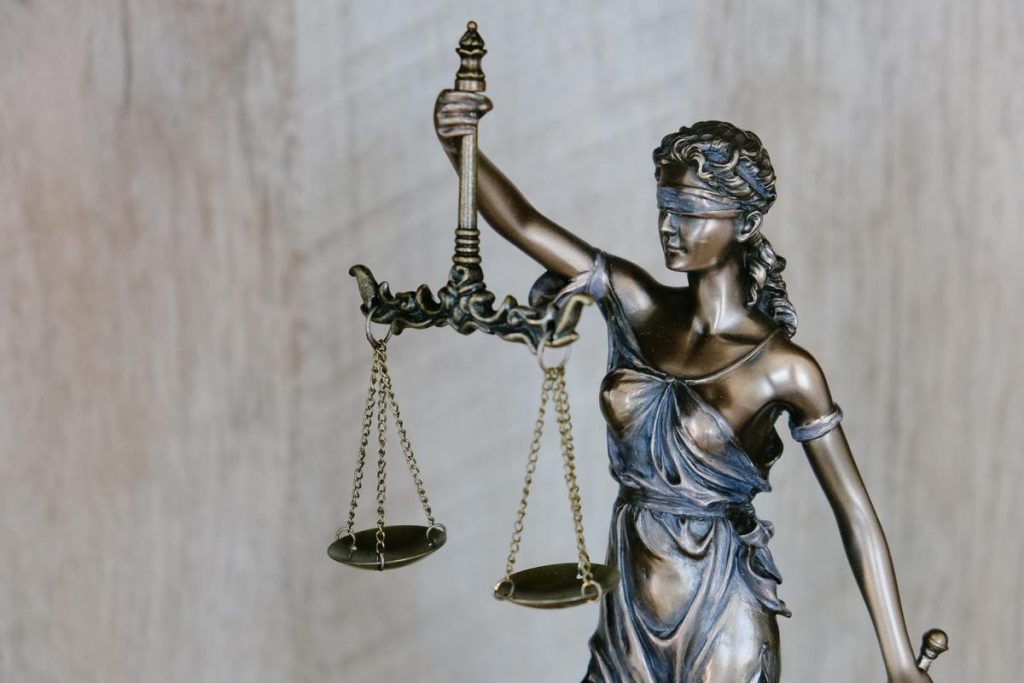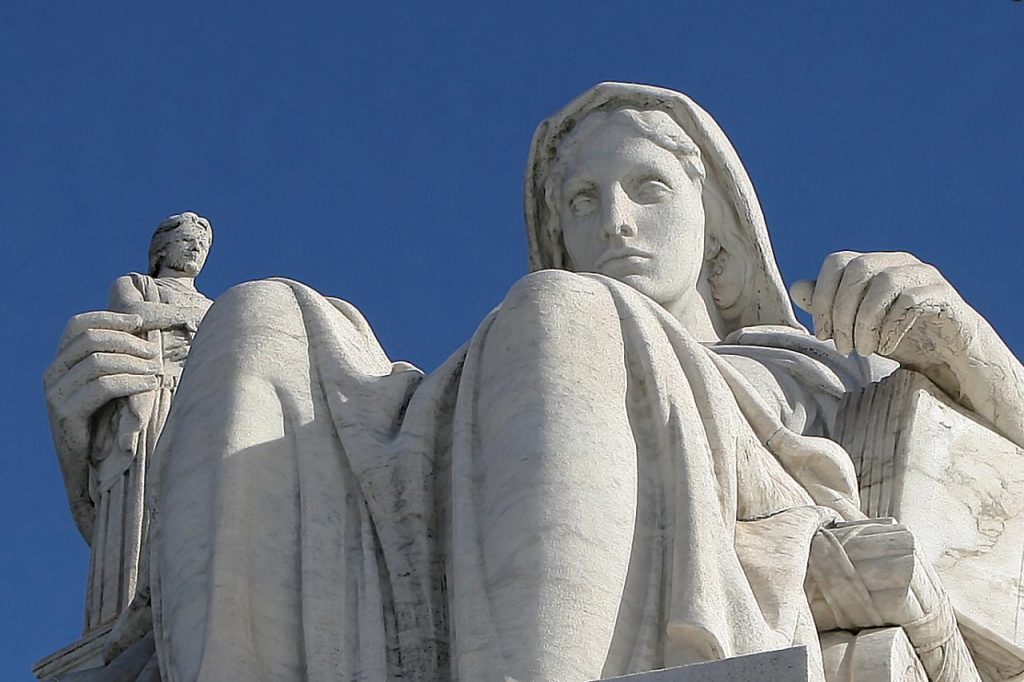“The needs of the many outweigh the needs of the few” – funny, but this quote from the science fiction movie “Star Trek II” serves as an epigraph in one unusual court document.
“Plaintiffs have outwitted the judiciary. Hiding from public censure, they dug up several ancient copyright laws, and then forced the defendants to bear beyond measure inflated costs ”- with such an angry phrase begins the order itself, issued on May 6, 2013 by US District Court Judge O.D. Wright (Otis D. Wright, II) in Ingenuity 13 LLC v. John Doe. Even if the defendant downloaded just one video, the judge continued, the plaintiffs offered to pay him a sum to dismiss the case, only slightly short of the cost of a full legal defense. Resistance to outright blackmail was unlikely: after all, all the defendants were accused of illegally downloading adult films. Publicity of this fact in court for many of them would be like public censure, humiliation, torture (the list of torments can be continued). The defendants were forced to agree to the terms of the unfair plaintiffs. Created to support starving artists, copyright “allows starving lawyers in this era of electronic media to rob the population.” “Plaintiffs have every reason to defend their intellectual property right, but only as long as they do so in good faith. The current practice of presenting carbon-copied claims to thousands of defendants is alarming for the court. Hiding behind a cloak of pretense and shell companies, the plaintiffs turned the court into a battlefield,” the judge colorfully outlines his vision of the problem. (Yes, and the entire text of the court order is a storehouse of figurative legal vocabulary and metaphors, useful for English learners).

And then an almost detective story begins, in which the representative of the plaintiffs withholds information from the court and presents forged documents. The judge is examining several similar cases involving the same plaintiffs. And he comes to the conclusion that behind the individual procedural representatives there is a group of lawyers who can be described as “copyright trolls.” A relatively new variety of negative characters that appeared in nature after patent trolls. Sincerely indignant at the unscrupulousness of the seekers of easy money, realizing the danger of abuse of intellectual rights, the judge conducted a thorough investigation into the fraudulent activities of the trolls and punished them quite severely.
Patent trolls today are already well studied by legal science.
The harm from their activities is generally recognized. The legal community is working on mechanisms to combat them. Since about 2010, they have penetrated into the sphere of copyright. And if earlier professional market participants suffered from the activities of trolls, now many ordinary Internet users are under attack. Like patents, copyright trolls specialize in the fact that, without creating any new creative result, they parasitize on individual creative objects, forcing willful and unwitting violators to pay excessive compensation for their use. It is regrettable to note that reliable ways to counter them have not yet been tested. American courts have to look for the slightest opportunity to deny copyright trolls the protection of rights, at least on formal grounds (for more details, for example, here). Whereas the way trolls work not only causes economic damage to many ordinary users, but undermines the credibility of the basic principles of copyright. And his condition today is already very unstable. Dissatisfaction with them is voiced by both authors and users. However, experts hope that the growing negative attitude towards various abuses and intermediary schemes in the field of copyright may serve as an impetus for a serious modernization of the copyright system. Fortunately, there is already an understanding of how modern technologies can shorten the communication chain between the author and the user, reduce transaction costs and open access to cultural heritage for the general public. In light of the foregoing, court decisions such as the one discussed in this article, which clearly highlight the shortcomings of the current copyright mechanisms, by their very unusualness draw general attention to urgent problems.
So, the judge, referring to his right to control the judicial behavior of lawyers and punish for disrespect for the organ of justice, demanded that secretive persons come out and clarify the nature of their activities, relationships with each other and financial interests. That’s what he found during the investigation, overcoming obstacles from the trolls.
Steele, Hansmeier and Duffy (Principals) are lawyers with faltering business practices.
In search of easy money, they colluded to set up a number of offshore companies (AF Holdings LLC, Ingenuity 13 LLC and a number of others) with the sole purpose of prosecuting copyright infringers. Companies created the appearance of legitimate activity and protected from the responsibility of the Principals themselves. The companies had no assets other than the copyrights to a few pornographic films. The functions of the absent owners and officials of the company were actually performed by the Principals. Fearing too much publicity, the Principals preferred to hide behind the backs of dishonest hired lawyers, sending the latter into trials, but maintaining full control over them. In his order, the judge even provides a colorful diagram showing the relationship of all involved persons.
Since 2010, having hired the law firm Prenda Law, which they themselves owned, as a representative, they began to raid. The tactic was next. They tracked the IP addresses of those who downloaded their movies using the BitTorrent protocol, obtained personal data from Internet providers through the courts of the owners of the collected addresses, and sent them letters demanding to stop the violations, offering to settle each dispute for the amount of about $ 4,000. The principals did not bother to collect evidence accurately. They were content with the fact that a particular IP address was associated with a particular video on a file-sharing network. But whether the user downloaded the film in principle, whether it was in sufficient volume so that it could be viewed, whether it was shared with someone, and whether the IP address belonged to him or was maliciously assigned by someone, the plaintiffs were not interested. If there was not enough evidence, they were simply falsified. For example, a representative of the plaintiffs argued that outsiders could not access the defendant’s Wi-Fi signal because he lives in a huge household behind a high fence. And the judge, just looking at Google maps, saw a lonely little house in the open. The principals even hid behind the identities of unsuspecting people (for example, the gardener of one of them): they signed copyright statements on their behalf, called the heads of their offices – all so that the court did not find out about the true role of intermediaries pursuing their own vested interests.
Many people have suffered from this practice.
The serious amount of compensation provided for by law, the huge amount of legal expenses, the delicate nature of the claims – forced them to agree to the payment of compensation (and the Principals did not even pay taxes on the collected amounts). Obstinate defendants were involved in the trial. But they only increased their costs. Whereas unscrupulous plaintiffs, churning out the same type of claims based on template evidence, with inflated property claims, minimized their own costs. Only defendants who were ready to go to the end avoided losses. Seeing that the easy prey was leaving, the plaintiffs abandoned their claims at the last moment, because they were not interested in a thorough trial.

For such dishonesty and abuse of intellectual rights, the perpetrators were held accountable. As the judge noted, it would be most reliable to require them to pay a fine, indicated by a seven-figure figure. But since the Principals are not direct participants in the processes organized by them, the punishment will be indirect, but very severe. The judge doubled the amount of court costs (to $81,319.72) that the plaintiffs would have to pay the defendants, notified the disciplinary committees of the bar associations and the rest of the judiciary of the unfair and outright fraudulent practices of the organizers of the scheme, and also initiated criminal proceedings in the tax authorities.
The plaintiffs unsuccessfully attempted to challenge this court order by attaching to their papers a motion … to uphold it. Judge Wright pointed this out with some gusto in his warrant yesterday, additionally ordering the plaintiffs to pay $1,000 in damages for each day of non-compliance with the earlier order to reimburse the defendants for double court costs.
